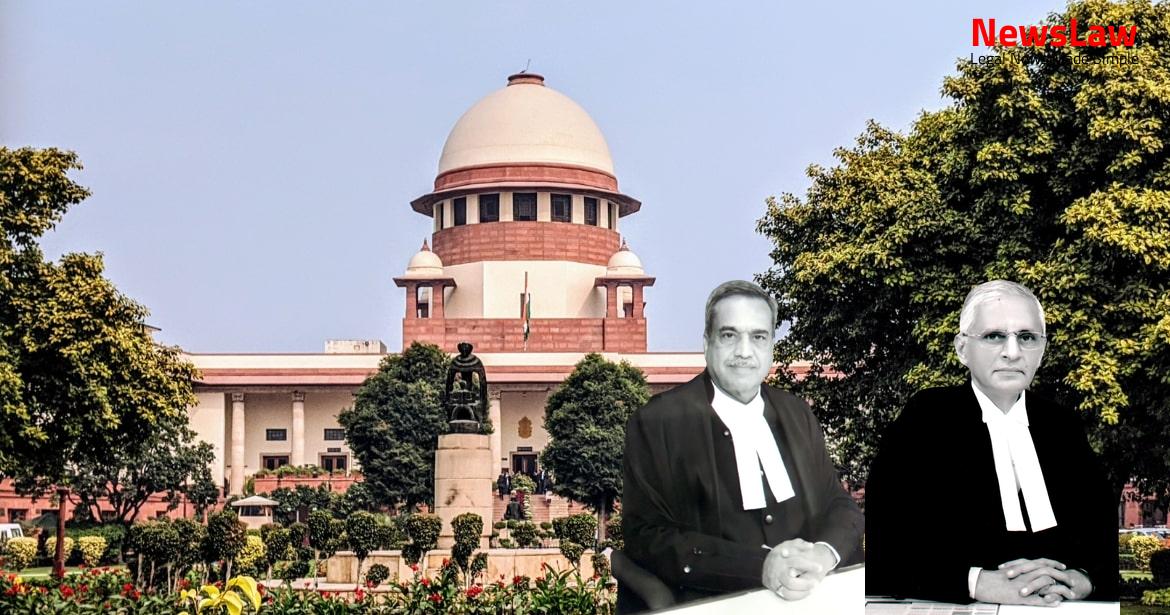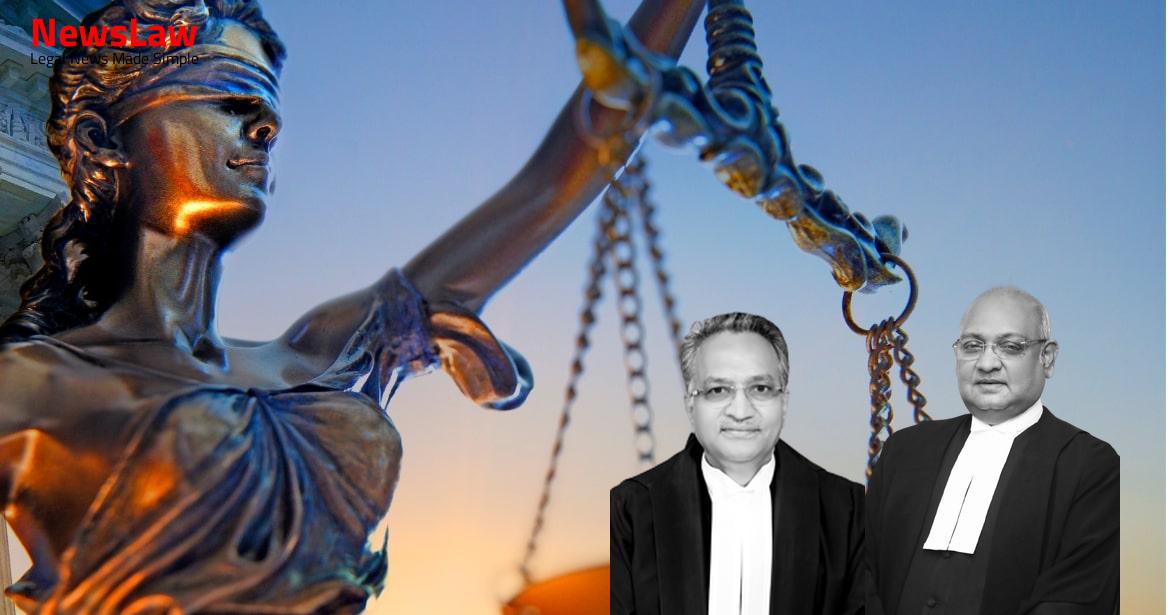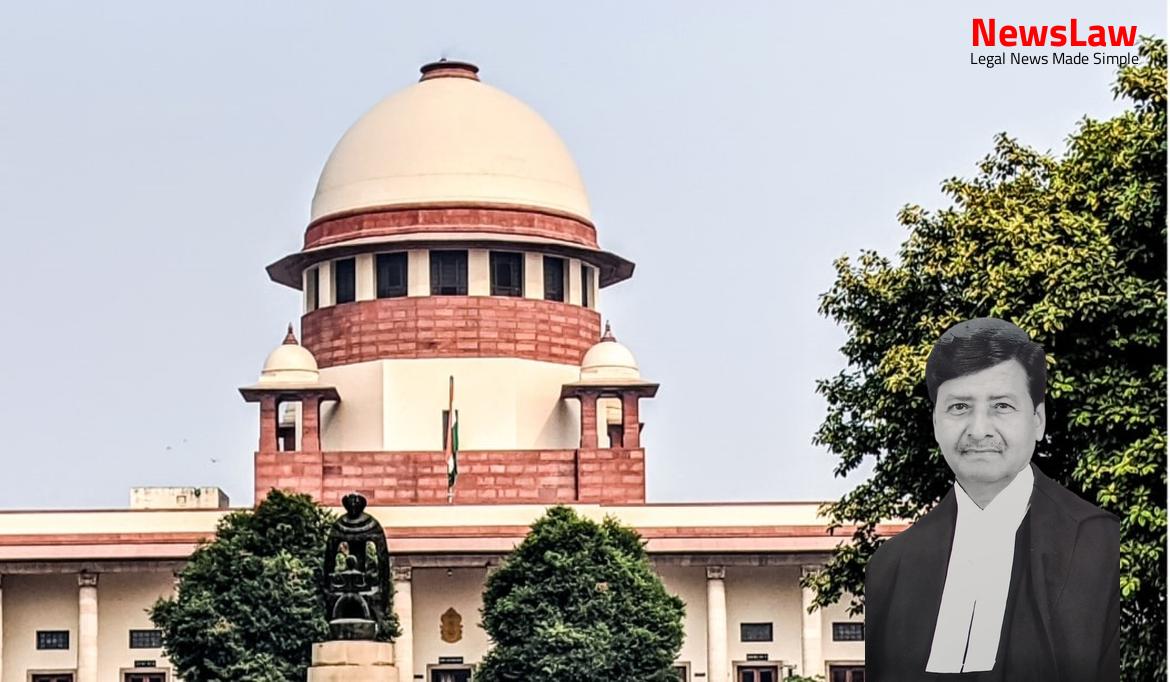The recent court decision delves into the intricacies of interpreting rules for compassionate appointments, emphasizing the significance of legal analysis in such matters. The case highlights the importance of adhering to established rules and policies in public service appointments, shedding light on the principles enshrined in the Indian Constitution. Let’s explore the in-depth analysis of the court’s interpretation and its impact on compassionate appointment policies.
Facts
- The appellants are aggrieved by the judgment and order of the High Court dated 17.12.2018.
- The High Court quashed the order of the Karnataka State Administrative Tribunal and directed the appellants to consider the application for compassionate appointment of the original petitioner.
- The High Court interpreted Rule 3 of the Rules, 1996 to include a divorced daughter in the same category as an unmarried or widowed daughter.
- The original petitioner approached the High Court against the order of the Administrative Tribunal.
- The High Court, in its judgment, directed the appellants to consider the application for compassionate appointment of the original petitioner based on this interpretation.
- Original writ petitioner, a married daughter at the time of her mother’s death, initiated divorce proceedings for divorce by mutual consent.
- On the day after submitting the divorce application, she applied for compassionate appointment on the death of her mother who was a government employee.
- The application for compassionate appointment was rejected by the Karnataka State Administrative Tribunal after approximately 2 years from the date of rejection.
- Tribunal dismissed the application on the ground that there is no provision for appointment on compassionate ground for a divorced daughter.
- The divorce by mutual consent was granted by the Civil Judge.
- Another application for compassionate appointment was rejected citing the absence of provision for a divorced daughter in the Karnataka Civil Services Rules 1996.
Also Read: Judicial Review of Delayed Writ Petition
Arguments
- The High Court has not considered important aspects of the case.
- The directions given by the High Court for considering the divorced daughter’s application for compassionate appointment go against Rule 3 of Rules, 1996.
- Rule 3 of the Rules, 1996 specifies that only ‘unmarried and widowed daughters’ are eligible for compassionate appointment.
- Rule 3 (2)(ii) does not include ‘divorced daughters’ for compassionate appointment.
- The High Court erred in setting aside the Tribunal’s order and directing consideration of the application for compassionate appointment.
- The direction to consider the divorced daughter’s application is not in line with the Rules, 1996.
- It was not proven that the respondent was dependent on the deceased employee at the time of her death.
- The respondent’s actions of obtaining a divorce right before applying for compassionate appointment raise doubts about her intentions.
- The respondent argues that the ‘divorced daughter’ should be considered in the same category as ‘unmarried’ or ‘widowed daughter’.
- The High Court’s interpretation of Rule 3 of the Rules, 1996 as purposive is supported by the respondent.
- The rule-making authority’s intention in including ‘unmarried’ or ‘widowed daughter’ in the definition of dependent is highlighted by the respondent.
- The High Court’s interpretation of Rule 3 in line with the object and purpose of the rule’s 2000 amendment, which added ‘unmarried daughter’ and ‘widowed daughter’ to the definition of ‘dependent’, is agreed upon by the respondent.
- The respondent points out that even the Karnataka Civil Services Appointment on Compassionate Grounds (Amendment Rules, 2021) now allows for the appointment of ‘divorced daughter’ on compassionate grounds, aligning with the High Court’s interpretation.
Also Read: Ownership Dispute: Legal Analysis on Admission and Decree
Analysis
- Compassionate appointment is an exception to the general rule and does not confer a right.
- No one has a guaranteed right to compassionate appointment.
- Appointments in public service must comply with principles outlined in Articles 14 and 16 of the Indian Constitution.
- Appointment on compassionate grounds is subject to meeting the eligibility criteria set by the State’s policy.
- The norms existing at the time of application consideration should be the basis for determining compassionate appointment eligibility.
- Rules 2 and 3 of the Karnataka Civil Services (Appointment on Compassionate Grounds) Rules, 1996 define eligibility for compassionate appointments for dependents of deceased government employees.
- Only ‘unmarried daughters’ and ‘widowed daughters’ who were dependent on the deceased female government servant at the time of her death and living with her are considered eligible for compassionate appointment.
- Notably, ‘divorced daughters’ are not mentioned in the rules as eligible dependents for compassionate appointments.
- The High Court’s direction to consider the respondent’s application as a ‘divorced daughter’ for compassionate appointment was beyond the scope of the existing rules.
- The judgment highlights that dependents of deceased government employees must meet the policies’ norms to be considered eligible for compassionate appointments.
- The ‘divorced daughter’ cannot be considered the same as an ‘unmarried daughter’ or a ‘widowed daughter’ in this case.
- The respondent obtained a divorce by mutual consent after the death of the deceased employee, so at the time of the employee’s death, she was not a ‘divorced daughter’.
- At the time of the deceased employee’s death, the respondent was married, and therefore cannot be considered a ‘dependent’ under Rule 2 of the Rules 1996.
- The fact that the respondent was married at the time of the deceased employee’s death is an additional ground for rejecting her application for appointment on compassionate grounds.
Also Read: Interpretation of Statutory Limitation under Section 263(2)
Decision
- The High Court judgment in Writ Petition No. 5609/2017 has been quashed and set aside.
- The Writ Petition has been dismissed.
- The respondent is not eligible for appointment on compassionate grounds following the death of her mother and the deceased employee.
- The appeal has been successful.
Case Title: THE DIRECTOR OF TREASURIES IN KARNATAKA Vs. V. SOMYASHREE (2021 INSC 472)
Case Number: C.A. No.-005122-005122 / 2021



